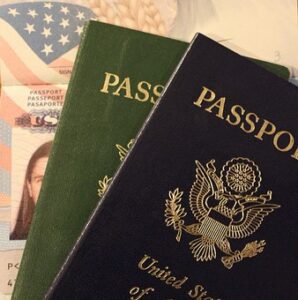So you already made the decision to participate in an exchange program and you are very excited. First, let us congratulate you because, you’ll live an experience from which you will get many benefits.
Now, in this article, we will give you a series of recommendations, so that you can make the transition between your country and the host country in the best way, and get the most out of your exchange program.
1. Make sure you have a valid passport and visa

Many countries require that the traveler’s passport, be valid for 6 months after the date of return, so make sure that yours meets this requirement.
Also, find out about the type of visa you need (if required), which will depend on your country of origin and the duration of your exchange program: usually, if the program lasts more, than three months you will need a student visa. In any case, try to have these documents, at least two months before the date of your trip, to be able to handle any delay in that regard.
2. Acquire travel insurance
Your current medical insurance may not have international coverage. In such case, it is convenient that you acquire an international policy for students, in order to be covered before any contingency, that may arise on the flight (such as the loss of your luggage) or during your stay in the host country. It is better to be alert to the occurrence of this type of situation.
3. Find out about travel warnings and recommendations
It is important that before embarking to your exchange program’s host country you should find out if there are warnings and travel recommendations, regarding that country with respect to health issues or problematic social conditions which may not be covered by travel insurance.
4. Pack properly

At the time of packing, you should not only define the type of clothing you must carry with you take taking into consideration the climate that will be in the country of destination during your stay, but you should also avoid storing valuables in your suitcases. It is preferable that you take this type of objects with you in your carry-on luggage, as long as this is allowed by the airline. Also, it is recommended that you be aware of your luggage at all times and that you do not receive objects from other people to avoid risks.
5. Get vaccinated and obtain medical prescriptions if you need them.
Some countries require that one or more vaccines have been placed in order to enter them; Find out in advance this information, preferably six weeks before your trip. Likewise, if you have any special health condition or use corrective lenses, it is important that you bring all this information so that you can give it to a doctor in the host country, if necessary. Also, if you plan to take medicines from your country of origin to use them during your exchange program, it is important that you bring the medical prescription that proves your medical condition, and that you ask the airline if there are any restrictions in the host country in this regard.
6. Contact the closest diplomatic corps
Once you are in the host country, it is important that you go to the closest consulate or embassy of your country to report your presence in the first. This is important because these diplomatic corps are in charge of handling the evacuation of the citizens of their country in case of an emergency.
7. Get in touch with your banks
Banks usually block unusual transactions. For this reason, contact the banks that issue your credit cards to inform them that you will make a trip as well as its duration so that you do not have any problems when making payments during your exchange program. It is important that you have at hand in a safe place the telephones of your banks as well as the keys or any necessary information in that sense in case you require it to handle any situation with these institutions during your exchange program.
Do you want to participate in an exchange program? Contact us so we can help you.




